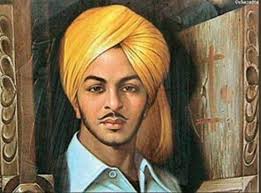
Introduction
Bhagat Singh was not just a revolutionary fighter; he was also a deep thinker and an ideological pioneer. His political beliefs were rooted in socialism, anti-imperialism, and secularism. He envisioned a free India that was not only independent of British rule but also free from economic exploitation and social injustice.
Influence of Socialism
Bhagat Singh was profoundly influenced by socialist ideologies. He was an avid reader of Karl Marx, Vladimir Lenin, and other socialist thinkers. His belief in socialism stemmed from the idea that political freedom was meaningless without economic equality. He envisioned an India where wealth was distributed fairly, and the working class had control over the means of production.
He wrote extensively about the need for a classless society, where capitalism and feudalism would be dismantled. This vision aligned with his involvement in the Hindustan Socialist Republican Association (HSRA), which aimed to create a socialist state in India.
Rejection of Capitalism and Feudalism
Bhagat Singh saw capitalism and feudalism as major obstacles to India’s true independence. He believed that merely removing the British would not liberate the common people unless economic structures were changed. His disdain for the exploitation of labor was evident in his support for workers’ rights and agrarian reforms.
Atheism and Rationalism
Bhagat Singh was one of the first Indian revolutionaries to openly declare himself an atheist. In his famous essay, “Why I Am an Atheist,” he criticized blind faith and superstition, arguing that religion was often used as a tool to divide and exploit people. He emphasized rational thinking and encouraged youth to question traditional beliefs and oppressive practices.
Anti-Colonialism and Anti-Imperialism
Bhagat Singh was fiercely opposed to British imperialism. However, his ideology was not limited to just India; he sympathized with oppressed nations worldwide. He believed that imperialism was a global problem, and he sought alliances with international revolutionary movements to fight colonial rule everywhere.
Secularism and Unity
Unlike many leaders of his time, Bhagat Singh strongly opposed communal divisions. He believed that religion should not dictate politics and that India’s struggle for independence must remain united, irrespective of religious or caste identities. His emphasis on secular nationalism was evident in his association with Naujawan Bharat Sabha, which promoted unity among Hindus, Muslims, and Sikhs.
Role of Violence in Revolution
Bhagat Singh is often associated with revolutionary violence, but he did not see violence as the ultimate goal. He believed in using armed resistance only as a tool to awaken the masses and expose the brutality of British rule. His participation in acts like the assassination of J.P. Saunders and the Central Assembly bombing were symbolic rather than purely violent actions. He saw them as necessary for shaking the foundations of an indifferent society.
Advocacy for Youth Participation
Bhagat Singh firmly believed that the youth were the driving force behind any revolution. He urged young people to educate themselves politically and socially so they could challenge oppressive systems. His writings and speeches often targeted students and young activists, encouraging them to take an active role in shaping India’s future.
Bhagat Singh’s Vision for India
His ultimate dream was an India free from oppression of any kind—be it political, economic, or social. He wanted:
- A socialist state where resources were owned collectively.
- A secular government that did not favor any religion.
- Equal rights for all, regardless of caste, gender, or wealth.
- An end to colonial-style exploitation, even after British rule ended.
Legacy and Relevance Today
Bhagat Singh’s ideology continues to influence political movements in India and around the world. His writings are still studied by socialists, secularists, and revolutionaries who seek to challenge oppressive regimes. His emphasis on rational thought, secularism, and economic equality remains relevant in modern political discourse.
Conclusion
Bhagat Singh was much more than a freedom fighter; he was a visionary with a well-defined ideology. His commitment to socialism, secularism, and rationalism set him apart from many of his contemporaries. Even decades after his martyrdom, his beliefs continue to inspire movements that strive for justice, equality, and true freedom.
Reference Websites:
- Wikipedia – Bhagat Singh’s Ideology
https://en.wikipedia.org/wiki/Bhagat_Singh - Government of India’s Official Portal on Freedom Fighters
https://knowindia.india.gov.in/ - The Hindu – Articles on Bhagat Singh’s Political Thought
https://www.thehindu.com/ - Times of India – Historical Accounts on Bhagat Singh
https://timesofindia.indiatimes.com/ - The Indian Express – Bhagat Singh’s Vision for India
https://indianexpress.com/
Bhagat Singh’s ideas continue to shape discussions on freedom, justice, and governance, making him one of the most influential revolutionaries in history.